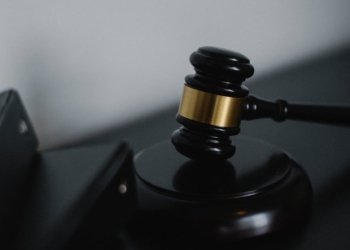The complainant has approached the court by filing a petition under Section 143A N.I. Act. But on a reading of the provision it is clear that for invoking the power under the provision, an application need not be filed by the complainant. The power can be exercised by the court in seizing of the prosecution suo motu at the relevant time when a plea that the accused is not guilty of the offence alleged against him is raised by him.
There is no need for the complainant to apply for getting the relief of the nature as contemplated by the provision. 7. It is indicative on a reading of Section 143A which has been newly introduced into the N.I Act that the Court trying an offence under section 138 shall suomotu exercise the power. There is no need for an application to be filed by the complainant in that regard. Likewise, the section also does not provide for an opportunity, for the accused to be heard. Nowhere under Section 143A N.I. Act, it is provided that prior to passing of an order directing payment of interim compensation, the accused needs to be granted an opportunity of being heard. Even though the word ‘may’ is in use in the provision, it will have the impact of ‘shall’ since prosecutions launched under Section 142 cannot be identified as scrupulous or unscrupulous ones at the preliminary stage when complaint is filed. Interim compensation contemplated under Section 143A N.I. Act is something meant to be imposed on all accused irrespective of the amount involved in the prosecution filed under Section 142 N.I Act. Therefore, the argument of the learned counsel that the objection filed by him to the application under Section 143A N.I. Act was not considered by the court is of not that much relevance.
9. Going by Annexure A1 it is seen that it is an order of attachment passed before judgment, in favour of the complainant, who was a plaintiff in a suit pending before a civil court. Therefore, the order of attachment will only act as security for realization of money when ultimately a decree is passed against the defendant in the civil case. Only when a decree is passed in favour of the plaintiff in the civil suit, the attachment order will be enforceable. That has no relevance when the power under Section 143A is invoked by the trial court in a case under Section 138 N.I. Act. Section 143A is an independent and self contained provision. Therefore, the argument of the learned counsel that the trial court ought not to have passed an order under Section 143A, when an attachment order is obtained by the complainant against the accused from a Civil Court will Oct 14 2020 Page 4 of 5 not sustain. Moreover, in case the prosecution under Section 142 N.I Act turns unsuccessful, sub-section (4) of Section 143A N.I Act provides for repayment of the interim compensation along with interest at the rate specified therein. For the reasons that argument is also repelled.
10. Going by the order under challenge, it is noticed that the order has been passed by the court invoking power under Section 143A N.I. Act. It has been passed at a stage when the plea of the accused was recorded. In the case on hand, the complainant has approached the court by filing a petition under Section 143A N.I. Act. But on a reading of the provision it is clear that for invoking the power under the provision, an application need not be filed by the complainant. The power can be exercised by the court in seizing of the prosecution suo motu at the relevant time when a plea that the accused is not guilty of the offence alleged against him is raised by him. There is no need for the complainant to apply for getting the relief of the nature as contemplated by the provision. In the case on hand, it is evident from the impugned order that an application was filed by the complainant under Section 143A N.I. Act and the power was exercised by the Court at the right point of time when the plea of the accused on guilt was recorded. Therefore, the challenge of the order for the reason that the power under Section 143A was invoked incorrectly by the court will not sustain. By the impugned order the accused was directed to pay 20% of the cheque amount as interim compensation within a period of 60 days from the date of the order. This Court does not find anything unreasonable or illegal in the direction imposed by the impugned order. In view the above discussion, the order under challenge is liable to be confirmed
Jisha, W/o. Praveen V/s State of Kerala &Ors. –Crl. M C.No.3136 of 2019 Decided On : 25,06,2019, 2019 0 Supreme(Ker) 691 2019 5 KHC 729; 2019 4 KLT 558 HIGH COURT OF KERALA




